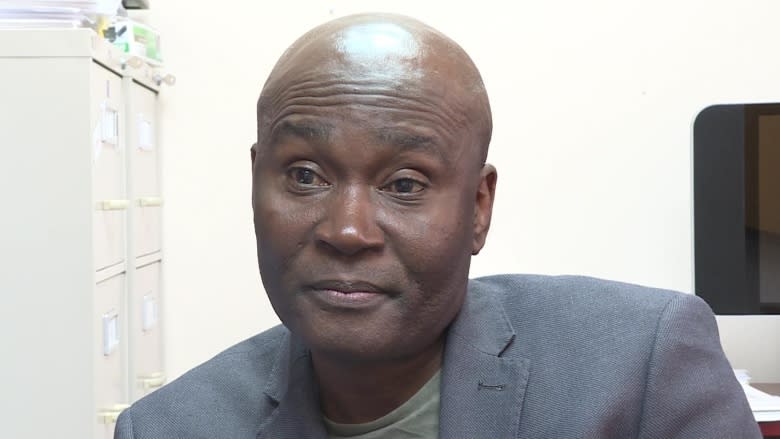Royal implements changes in wake of Ottawa hammer attack
The Royal Ottawa Mental Health Centre implemented significant changes in the way it keeps tabs on patients living in the community after an Ottawa man with schizophrenia attacked an innocent bystander with a hammer.
On Thursday Jeff Weber, 32, was found not criminally responsible for the December 2014 assault, which left the victim partially blind. The decision marked the fourth time since 2006 that Weber has been found not criminally responsible for a serious crime because of his mental illness.
At the time of the attack Weber was returning unsupervised from Algonquin College to the transitional group home he'd been living in since his release from the Royal seven weeks earlier. The day before he'd told his psychiatrist he'd been experiencing "disturbances," and staff at the home noted changes in his behaviour.
Now Weber is back at the Royal where he's living and receiving treatment in a secure unit. The Ontario Review Board, the provincial panel that reviews cases involving people who have been found not criminally responsible or unfit to stand trial, has 45 days to reach a decision about his long-term placement.
Psychiatrist on call 24/7
According to Dr. AG Ahmed, associate chief of psychiatry responsible for the forensic program at the Royal Ottawa Mental Health Care Group, the hospital has made changes to the way it treats and monitors the mental health of patients living in the community since the attack.
"Absolutely we've learned from this case," Ahmed said.
One major change implemented after the December 2014 incident is that a forensic psychiatrist is now available on call 24 hours a day, 365 days a year for consultation by staff at transitional group homes such as the one in Old Ottawa South where Weber was placed.
"So for instance, if there's a case and there was an increase in auditory hallucinatory experiences, or there was an increase in any form of psychotic symptom, the nurses can pick up the phone and say, 'Look, can I speak with the on-call psychiatrist?'" Ahmed said.
The on-call psychiatrist will then perform an immediate, over-the-phone assessment.
"If the patient needs to come back in ... we admit the patient to our crisis unit."
The on-call psychiatrist will determine whether the patient needs additional medication or another form of intervention, Ahmed said.
More frequent meetings to assess risk
Another change, according to Ahmed: the Royal's quality of care review committee now meets more frequently to discuss patients' needs.
At the twice-monthly meeting staff from the care home and psychiatrists from the Royal go over the patient's care plan, discuss any changes in behaviour and assess risk to the patient or others.
"This will aid early detection and earlier responses," Ahmed said.
Weber's care plan came under scrutiny during his most recent trial because there was some evidence that he was exhibiting symptoms just before the attack occurred.
"I've never seen a care plan like that before," Erick Armstrong, a rehabilitation counsellor at Weber's care home testified during the trial. "It was clear [we were supposed] to leave him be, let him do his own thing."
Dr. Gary Chaimowitz, chair of psychiatry for the Ontario Medical Association and the head of psychiatry and behavioural sciences at McMaster University, also testified: "[Weber's care] team will need to do something different managing his risk because clearly this was not predicted and prevented."
Weber case 'unfortunate'
"This is a case that is unfortunate, this is a case that tests the limit of risk assessment, and this is a case that actually helps us as a society to keep risk assessment on our radar at all times," Ahmed said.
"It is a case that requires us to be very sensitive to allocation of resources, and to know that in this business it's an art and a science, and there's a need to constantly monitor this at all levels: clinicians in the trenches, administrators and the government alike."
Ahmed pointed out that while about one per cent of the Canadian population suffers from schizophrenia, a "good proportion" of those have what psychiatrists call a "resistant" form of the disease that doesn't respond well to medication and involves "residual symptoms."
Yet even in those cases, violent acts such as Weber's are exceedingly rare, Ahmed said.
"This is very unusual. We have successfully reintegrated a number of people who have been found NCR because we have a very good monitoring system."



